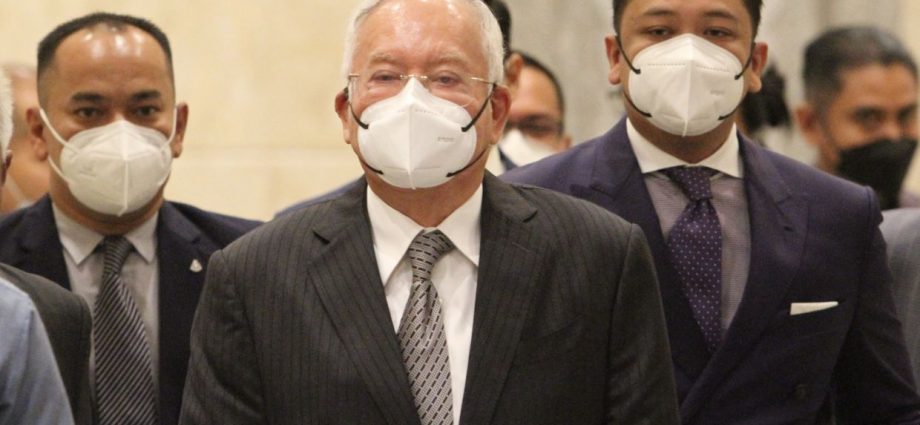
PUTRAJAYA: The Federal Court has dismissed former prime minister Datuk Seri Najib Razak’s application to adduce fresh evidence in his final SRC International Sdn Bhd appeal.
Chief Justice Tengku Maimun Tuan Mat, who is chairing a five-man panel, said the applicant had failed to state exactly what the proposed additional evidence would prove or say on the charges brought against him.
ALSO READ: Apex court stands down to mull over new evidence bid
“To our mind, there is no miscarriage of justice,” she said in the unanimous decision.
Other judges on the bench are Chief Judge of Sabah and Sarawak Justice Abang Iskandar Abang Hashim and Federal Court judges Justices Nallini Pathmanathan, Mary Lim Thiam Suan, and Mohamad Zabidin Mohd Diah.
Chief Justice Tengku Maimun said even without the additional evidence, the defence was still able to ‘attack’ points of law in the main appeal.
ALSO READ: Najib wants ‘newfound info’ added
“We find the applicant has failed to cross the high threshold (to obtain leave to adduce new evidence). The motion is hereby dismissed,” she added.
Just as the Chief Justice said to proceed with the main appeal, Najib’s lead counsel Hisyam Teh Poh Teik stood up and made a passionate plea to adjourn the appeal proper in three or four months as Najib recently changed the law firm representing him.
ALSO READ: Defence bid to admit fresh evidence ‘flawed and self-serving’, says prosecution
“In great humility, I am making this plea.
“I normally do not come to this court to ask for adjournment unless it is absolutely necessary.
“There are strong points of law, serious arguments to canvas… the application I made now is made in good faith,” he said.
ALSO READ: Old enemies join hands for ‘final battle’
Hisyam said the court could see the strong arguments that the defence presented during the submissions for the application to adduce fresh evidence and this bona fide application to adjourn was by no means a delay tactic.
Lead prosecutor Datuk V. Sithambaram replied that all the facts of the case were available before the court and therefore left it in the court’s hands to decide on the adjournment.
The court stands down to deliberate.

